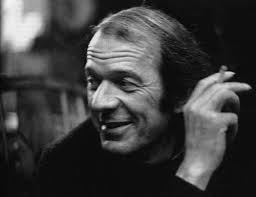Description
The Deleuze Seminars is a collection of audio recordings, transcriptions, and English translations of, and supplemental materials from, the lectures French philosopher Gilles Deleuze gave during his career at the University of Paris 8.
“Cinema, Truth, and Time: The Falsifier” was a 22-lecture seminar given from November 1983 to June 1984. This seminar, the third of four consecutive seminars Deleuze gave on cinema, shifts focus from the movement-image to the time-image. In these lectures, Deleuze continues to elaborate his theory of cinema through various theoretical and aesthetic frames including: Ancient Greek philosophy; Nietzsche’s reconsideration of the concept of truth; principles of formal logic; literature; the time-image as crystallization; and the filmmakers he thinks are particularly influential in creating the time-image. As a precursor to the publication of Deleuze’s second of two volumes on cinema, Cinema 2: The Time-Image (Cinéma II. L'image-temps, 1985), this seminar is a valuable resource to researchers interested in Deleuze’s film theory, as well as his larger philosophical oeuvre.
In the 17 April 1984 lecture, Deleuze explores how the freeing (le dégagement) of a time-image occurs. Topics of discussion include: Kant; time; the time-image; time and succession; intensive and extensive movement; ordinary time; Kant, original time (le temps originaire), and the time of everyday banality (la banalité quotidienne); that the 'Me' (Moi) and the 'I' (Je) are separated by the pure form of time, or the fissure (fêlure) of the cogito; the "I am an other" (je est un autre) of Rimbaud; and the Cartesian cogito.
This dataset includes: three mp3 recordings of the lecture (total time, 2:09:28), an aggregate version of the audio recordings into a single mp3, and the complete French transcription of the recorded lecture in both pdf (22 pp) and plain text.
-
Les Séminaires de Deleuze sont une collection d'enregistrements audio, de transcriptions et de traductions en anglais et de documents complémentaires des conférences que le philosophe français Gilles Deleuze a donné lors de sa carrière à l'Université de Paris 8.
«Cinéma, vérité et temps: le faussaire» était un séminaire de 22 conférences donné de novembre 1983 à juin 1984. Ce séminaire, le troisième des quatre séminaires consécutifs que Deleuze a donnés sur le cinéma, met l'accent sur l'’image-mouvement vers l’image-temps. Dans ces conférences, Deleuze continue d'élaborer sa théorie du cinéma à travers divers cadres théoriques et esthétiques, notamment: la philosophie grecque antique; e réévaluation de Nietzsche du concept de vérité; principes de la logique formelle; littérature; l’image-temps comme cristallisation; et les cinéastes qu'il pense sont particulièrement influents dans la création de l’image-temps. En tant que précurseur de la publication du deuxième de deux volumes de Deleuze sur le cinéma, Cinéma II. L'Image-Temps (1985), ce séminaire est une ressource précieuse pour les chercheurs intéressés par la théorie du film de Deleuze, ainsi que sa plus grande œuvre philosophique.
Dans la conférence du 17 avril 1984, Deleuze explore comment se produit le dégagement d'une image-temps. Les sujets de discussion comprennent: Kant; le temps; l'image-temps; le temps et la succession; mouvement intensif et extensif; le temps ordinaire; Kant, le temps originaire, et le temps de la banalité quotidienne; que le Moi et le Je sont séparés par la forme pure du temps, ou la fêlure du cogito; le Je est un autre de Rimbaud; et le cogito cartésien.
Cite this work
Researchers should cite this work as follows:
- Gilles Deleuze (2018). Cinema, Truth, and Time: The Falsifier: Lecture 16, 17 April 1984. Purdue University Research Repository. doi:10.4231/R7MP51H5
Tags
Notes
This research has been generously supported through a grant from the College of Liberal Arts, Purdue University.
The description of this dataset is based on the meticulous work of Frédéric Astier, whose Les cours enregistrés de Gilles Deleuze, 1979-1987 has catalogued Deleuze’s seminars for those years.
Special thanks to the family of Gilles Deleuze and the University of Paris 8 for permission to reproduce the material published here.
The Deleuze Seminars
This publication belongs to the The Deleuze Seminars group.

